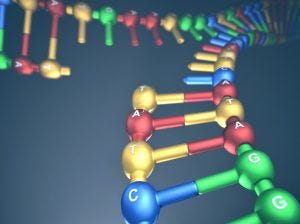
MilliporeSigma has bolstered its messenger RNA (mRNA) manufacturing offering with the addition of German CDMO AmpTec and its polymerase chain reaction (PCR)-based technology.
The deal, financials of which have not been divulged, went through last week and plays into MilliporeSIgma’s strategy to expand its mRNA manufacturing services for both therapeutic modalities and diagnostics.
The “technology acquisition,” as MilliporeSigma spokeswoman Rachel Bloom-Baglin describes the deal, comes fresh on the arrival of the first two mRNA vaccines. The US FDA approved both Pfizer/BioNTech’s and Moderna’s COVID-19 vaccines last month, and rollout has already begun in the US and elsewhere.

Image: iStock/ktsimage
“The success of mRNA-based vaccines for COVID-19 lays the path to accelerate the development of these therapies for many other diseases,” said Bloom-Baglin. “This acquisition expands our capabilities to develop and manufacture mRNA for our customers to use for vaccines, treatments and diagnostics applicable in Covid-19 and many other diseases.”
“By combining AmpTec’s PCR-based technology with our 20+ years of expertise in lipid manufacturing, we will be able to expand our mRNA capabilities and provide a truly integrated offering across the mRNA manufacturing process, which in turn will help advance life-enhancing therapeutics.”
The Hamburg, Germany-based AmpTec brings its polymerase chain reaction (PCR)-based technology to MilliporeSigma’s offering. According to the firm, the tech offers advantages over other manufacturing platforms in homogeneity, purity, activity and flexibility.
“In addition to specializing in mRNA technology, AmpTec also has a diagnostics business, which focuses on producing customized long RNAs and DNAs for in vitro diagnostics,” Bloom-Baglin told us. “This will complement our diagnostics business, which specializes in providing critical raw materials, components and services for in vitro diagnostics manufacturers.”
For example, AmpTec offers synthetic nucleic acids for the COVID-19 diagnostics tool EURM-019, released in April last year to facilitate quality control of the detection of SARS-CoV-2 at core facilities and hospital laboratories.
About the Author
You May Also Like

schedl_b_and_w.jpg?width=100&auto=webp&quality=80&disable=upscale)
schedl_b_and_w.jpg?width=400&auto=webp&quality=80&disable=upscale)



